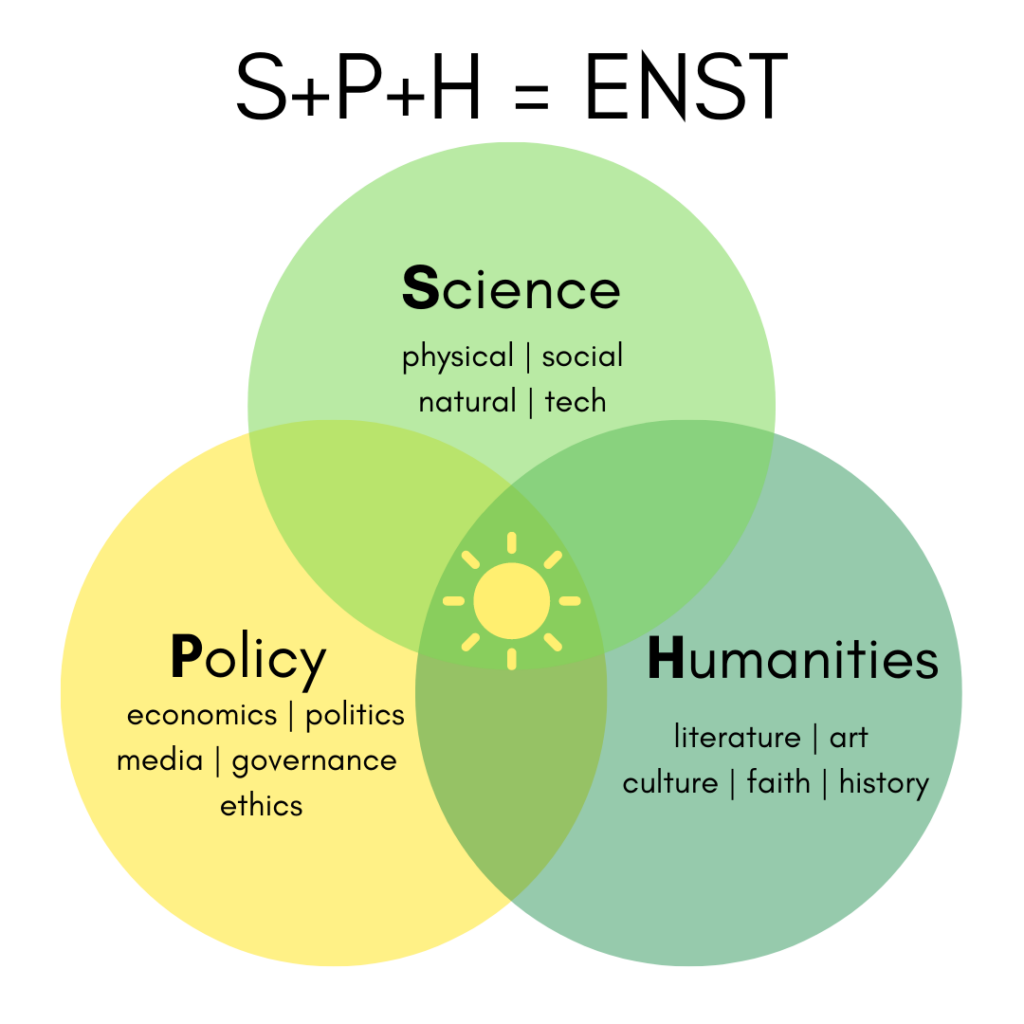About

The Environmental Studies (ENST) minor encourages students to explore complex ecological concerns, from food, water, and energy to biodiversity and climate change, from an interdisciplinary perspective. Since these issues involve the natural sciences, social sciences, and humanities, the minor provides a foundational introduction to all three areas, and then allows students to integrate these spheres or focus on a particular aspect of their choice. Members of the ENST learning community will explore possibilities for transformation through grounded research, policymaking, communication, and cultural production, and will engage with environmental issues at scales from the local to the global. Georgetown’s mission and values, and our location in Washington, DC, help cultivate a framework for providing students with a rich and meaningful experience engaging with environmental challenges and opportunities for change.
Values and Mission

The Environmental Studies (ENST) program aims to provide an integrative approach to environmental issues that bridges the sciences, policy analysis, and humanities. Specifically, the ENST program strives to cultivate core knowledge across the physical, ecological, and biological sciences; advance concepts and methodologies spanning political, social, and economic spheres; develop deep historical perspectives; analyze a range of relevant ethical and cultural values; and foster the development of effective communication skills and critical thinking. As a learning community, we encourage participation in research, policymaking, evaluation, and engagement.
Core Competencies

As part of a learning community, students in the ENST program will participate in cohort-based coursework and will interact with others across a range of environmental topics, both within and beyond the campus. The ENST program’s intention is to cultivate:
- Diverse fluency with environmental issues in science, policy, and humanities (SPH; see below)
- Systems thinking that promotes interdisciplinary approaches to critical environmental issues
- Engagement on campus and in the community through service, advocacy, participation
- Scalability of inquiries from local to global, bridging the social and ecological spheres
- Direct experience with policy, research, communication, and/or creative expression
The SPH Framework

